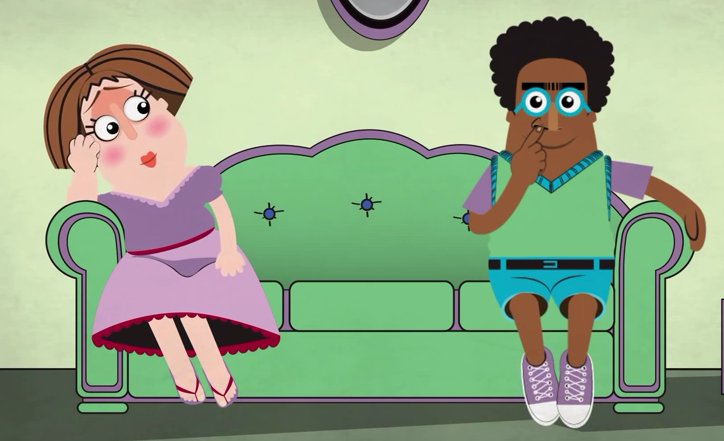Say you're helping plan a friend's party, and he sends you a text asking you to "bring Bob, a DJ and a clown."
假設(shè)你準(zhǔn)備幫你的朋友組織一個(gè)聚會(huì),你朋友給你發(fā)了一條短信要你記得叫上鮑勃,一個(gè)DJ和一個(gè)小丑。
You're pretty impressed. You had no idea Bob was so multitalented.
你感到好驚訝。你感嘆于鮑勃這個(gè)人可以如此多才多藝。
But when the day arrives, it turns out that he's not, and you were supposed to bring three different people.
不過(guò)當(dāng)那天到來(lái)時(shí),你發(fā)現(xiàn)并不是這樣的,你應(yīng)該叫上三個(gè)不同的人。
As you and Bob sit at the silent, clownless party, it occurs to you that the confusion could've been avoided simply by using another comma after DJ.
當(dāng)你和鮑勃在這個(gè)無(wú)音樂(lè),無(wú)小丑的聚會(huì)中尷尬著,你意識(shí)到,其實(shí)這樣的尷尬是本可以避免的,那條短信中只要在DJ后面加上一個(gè)逗號(hào),誤會(huì)就消除了。
This final comma in a list, placed directly before the main conjunction, such as and, or, or nor, is called the serial comma, or Oxford comma.
那個(gè)直接放在主要連詞,比如and和or之前句子的最后一個(gè)逗號(hào),我們稱之為連續(xù)逗號(hào)或者是牛津逗號(hào)。
And it has long driven grammar nerds crazy because even major language institutions can't agree on whether it should be used.
這個(gè)玩意對(duì)語(yǔ)法癡迷分子的折磨由來(lái)已久,因?yàn)榧词故悄切?quán)威的語(yǔ)言機(jī)構(gòu)對(duì)于它是否應(yīng)該被正式使用,也無(wú)法給出統(tǒng)一意見(jiàn)。

Ironically, the Oxford comma is more common in the United States,
諷刺的是,牛津逗號(hào)反而在美國(guó)使用的更加普遍,
where it's recommended by the MLA, the Chicago Style Manual, and the US Government Printing Office, though not by the AP Style Book.
因?yàn)樗灰恍┲髁鳈C(jī)構(gòu)推薦,如現(xiàn)代語(yǔ)言協(xié)會(huì),芝加哥文體手冊(cè)還有美國(guó)政府印刷辦公室,但是美國(guó)聯(lián)合印刷手冊(cè)不在其中。
In the UK and other English-speaking countries, most style guides do not support the comma's use, with the exception of its namesake, the Oxford University Press.
在英國(guó)以及一些英語(yǔ)國(guó)家,很多的文體指南并不是很支持逗號(hào)在除了人名表達(dá)之外的地方使用,如牛津大學(xué)出版社。
Why not use the serial comma?
為什么不使用連續(xù)逗號(hào)呢?
One of the main arguments is that the conjunction is usually enough to denote a separate entity.
論據(jù)之一就是連詞本身已經(jīng)足夠可以分割不同的名詞實(shí)體了。
And where it's not, like in your ill-fated invite list, changing the order of terms will usually do the job.
其實(shí)就拿這張倒霉的邀請(qǐng)卡來(lái)說(shuō),改變幾個(gè)名詞的次序也于事無(wú)補(bǔ)。
Journalists also dislike the comma because it takes up precious space and can make text look cluttered.
新聞工作者也不待見(jiàn)逗號(hào),除了占用寶貴的空格之外,它還會(huì)使文章看上去雜亂無(wú)章。
Sometimes, it can even create confusion of its own.
有時(shí)候,它還會(huì)帶來(lái)理解上的誤會(huì)。
For example, if your friend had asked for "Bob, a DJ and a puppy," you'd probably figure out that they're three separate beings.
比如,如果你朋友要你叫上鮑勃,一個(gè)DJ和一條狗。你可能會(huì)認(rèn)為他們是三個(gè)東西。
Puppies are cute, but they don't make great DJs.
狗狗即便可愛(ài),但是它們也不能是DJ。


